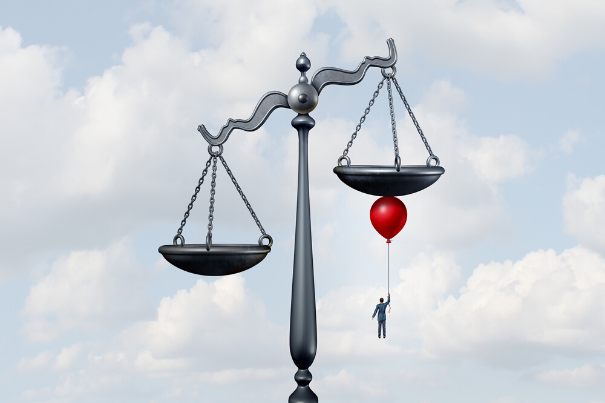Human bias is like a virus.
We have it and we don’t know we have it.
A large majority of us have subconscious or unconscious biases.
But first, let us see what is a bias?
It is defined as “disproportionate weight in favor or against an idea or thing usually in a way that is unfair.”
To expand on it- it is a thought that is based on what appears to us as truth or a rightful conclusion based on what we have seen in our upbringing and environment. It comes from our parents, family members, TV, social media, friends we keep, the books we read, etc.
Since it is an offspring of sorts connected with powerful emotions, it is difficult to question them. Coming out of them is almost impossible for the large majority. That is unless we make a conscious and mindful effort to deal with them.
To do that, we need to first dissect our biases a little and probe deeper.
According to J Marshall Shepherd, meteorologist, there are 3 kinds of biases that shape our worldview. To explain these, I have to use expressions that may seem bombastic but are actually simple.
They are – confirmation bias, Dunning-Kruger phenomenon, and cognitive dissonance. I know how you feel about these terms but relax, once I explain you will say- Aha, that I knew!
Read on!
Confirmation bias is looking and hearing only those stuff that reinforces what we think we already know. Basically, prove us right!
Dunning-Kruger means overestimating our ability at a task. It is simply an illusion of superiority and not realizing our domain or limitation or ignorance.
Cognitive dissonance means having two contradictory beliefs that lead to internal conflict. Generally, we make adjustments in our beliefs to become comfortable. Remember the fox who could not reach the grapes and said it is sour.
 Common and Practical examples of bias are gender bias and racism bias. But let’s look at a contemporary bias.
Common and Practical examples of bias are gender bias and racism bias. But let’s look at a contemporary bias.
Now if we believe that the coronavirus is a man-made biological weapon then it is a bias that is difficult to uproot even if the counter-arguments were made by the best of virologists. Now I must confess here, it is not relevant whether this belief is correct or not. It is just a bias that we may have.
We would see posts on conspiracy theories that confirm our bias and make us say- I told you so! That is confirmation bias.
We would not be ready to acknowledge that we are not competent enough to comment on whether this is a man-made virus. Remember, we are not virologists! That is Dunning–Kruger happening to us.
Finally, if reports were getting published how this virus came from a bat, and our belief may be getting shattered, we may start saying that the bat was taken to the lab where the virus was dissected off it and developed in the proverbial petri dish of mischief. That is cognitive dissonance.
Now that we are done with the academic part of it let us see why some biases can be innocuous and why harboring some may be very dangerous.
Let us study bias on religion. One may have a bias against a religion- Islamophobia being the current favorite. This is not new; only 80 years back, anti- Jew sentiments were the source of one of the worst genocides of all times in human history. And that is what makes it dangerous. Bias can be a powerful motivator to hate, kill, and even torture.
So how do we treat this malady if we don’t even know it exists within us!
Dolly Chugh, author of “how good people fight bias” tells us methods of how to dislodge our biases. Even if one is unsuccessful, at least, one would recognize it. These are-
1. Learning mindset – having a mindset where we grow lifelong is a wonderful idea to cherish. Even when we have stopped growing taller, our thoughts are evolving and we are getting better. How joyous is that! So, with that will come the thought- I could be wrong. And that can shake the bias. At least question it. So when confronted with evidence that is clashing with our belief, with a learning mindset, we may start hearing an inner voice- is my belief correct?
2. Developing kindness and listening to people with contrarian views, especially those who are marginalized or whose words are not heard, help in overcoming bias. By this method, you overcome your own confirmation bias because now you are engaging with people with opposite beliefs.
3. Believe that there is luck or providence or God, whatever you call it, behind your success. That may keep you humble and keep the illusion of superiority away. Kill the Dunning–Kruger at its inception.
To end this article, and being fair to this issue of bias, it is also important to remember that bias may not be as bad as we make it sound.
Sometimes, we need them. Scientists, for instance, start with a bias and look for evidence through research and trials. They call it a hunch. These bias may pave the way for the most astonishing and valuable discoveries. However, remember, scientists by their definition, recognize that they have started with a hunch or a bias and would generally be ready to change their stance if they found evidence to the contrary.
Therefore, do have a bias, but do pay attention to and be careful of how you think and what you believe. Because your Reality is getting shaped by your Biases.

